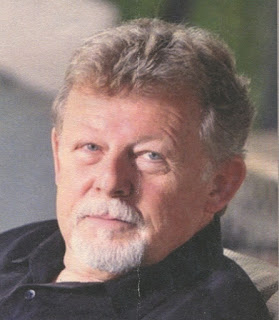Paul says we should not neglect to meet together … but “encourage one another, and all the more as you see the Day (of Jesus’ return) drawing near.”
Should we meet together in person, or is meeting together on computers okay?
Faith Temple Church (FTC), Taylors, SC, streams its major services on Facebook Live on the internet.
The COVID-19 (coronavirus) pandemic led FTC to connect with members — some with health issues — who feel they risk too much to attend live services.
Internet church, online church, or cyberchurch refer to ways Christian groups use the internet to present activities, according to Wikipedia.
“Internet-based Christian communities, better known as online churches or internet churches, began gaining popularity in the early 2000s,” says Wikipedia.
A 1996 study recommended that churches establish their presence in cyberspace or lose touch with many members and risk losing the ability to advise them in an era of technological growth. Churches were urged to establish an electronic presence before it was too late.
Many internet churches came from brick-and-mortar churches that offered an alternative to meeting in a church building. They are still criticized for their lack of human connection.
Online church offers convenience to folk who are isolated and unable to attend an in-person church service, notes Wikipedia.
Religious pollster George Barna sees Cyberchurch as one of the future macro-expressions (large scale forms) of church in the future.
Some issues for online churches:
One problem is the digital divide. The digital divide creates two groups, the rich and the poor, on the basis of access, or lack of access, to new information and communication, says Wikipedia.
Another concern is that the internet may encourage a consumer approach to faith. People may pick and choose, customizing their beliefs.
Many believe the internet can not replace in-person worship.
Some say internet church is VIRTUAL church.
What does the word virtual mean?
“The definition of virtual is something that exists in the mind, exists in essence but not in fact or created by a computer,” someone said.
An example of virtual is an imaginary friend.
But a friend you meet online (on the internet) can also be called a virtual friend, one you communicate with by internet relationship.
That’s confusing: In one case a virtual friend is called an imaginary friend, but in another case, a virtual friend is a real person you meet on the internet.
Some things we refer to as virtual may seem virtual but actually be real — it’s just that they are transacted online.
Online church is real. It’s real church carried out online. But, for some folk, online church may not seem as real as church done in-person.
Regardless of the confusion, online church is real in today’s technology-driven age.
Vanco, a business that aides churches, recently posted this headline: “Turning Your Physical Church into a Virtual Church — why every church should have virtual worship, now and later.”
In that ad, Vanco wrote, “For your members and guests, your church is a key pillar supporting their daily lives. But what happens when members are unable to congregate and receive the spiritual guidance they require? … because these members can’t physically attend, it doesn’t mean your church should forget about their spiritual needs, and its responsibility to fulfill them.”
Vanco says COVID-19 changed the way churches are doing things.
“Virtual worship has transformed from something only megachurches and the most tech-savvy congregations conduct, to a worship tool churches of all sizes use,” Vanco says.
And online giving is also being done.
Whatever our feelings are about in-person church or online church, we should accept this idea: Computer-conveyed church services are probably here to stay, at least as an option for many people.
I prefer to meet with real church people in a real church building, but the day may come when I will be thankful to worship while watching an online church service.


